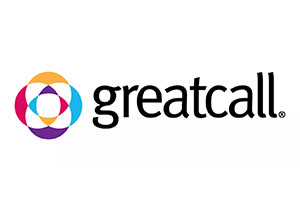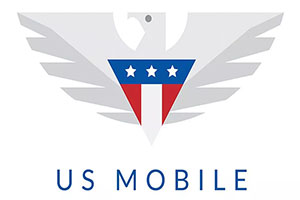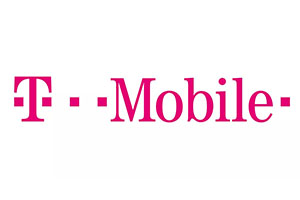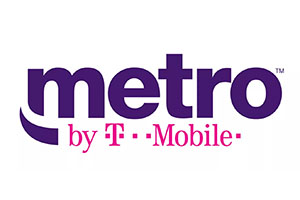A senior cell phone plan is a calling plan tailored to the specific needs of older individuals.
A senior cell phone plan may be prepaid or by contract, and will typically offer discounts for talk, text, and data. These plans are easy to customize and provide cell phone services at a very affordable price.
Below, our product experts have put together their list of the 10 best senior cell phone plans for 2023.
Rankings
1. GreatCall

Click here for more information
A lot of seniors have heard of or seen Jitterbug phones. GreatCall makes them. So it’s no surprise that the company that makes senior-specific phones would also offer senior-specific calling plans.
What we like: We like having both the phone and calling plan from the same company. It simplifies customer service. You can also add health services and one-touch urgent response.
Flaws: Not everyone is a fan of the look of the Jitterbug phones. Also, things add up quickly when you venture from the minimal services.
2. Verizon Mobile

Click here for more information
If you are one of the more than 4.5 million Florida residents 55 or older, you can get the Verizon Go Unlimited Plan for just $65 a month. If you choose auto-pay, you can knock off another $5 per month. And for two people it’s just $90 a month.
What we like: $60 with the $5 auto pay discount is good. Being able to use this plan anywhere in the country is good too. Also, both the network and customer service are above-average.
3. Republic Wireless

Click here for more information
Republic Wireless offers unlimited talk and text for a low $15 a month or $150 per year. Add 1 GB of data for only $5 more per month or a total of $200 per year. There’s nothing fancy here, and they don’t offer international service.
What we like: We really like that low, low price for unlimited talk and text. And we like that you have a choice of monthly or yearly plans. We also appreciate that they let you use your own phone and phone number.
Flaws: They reserve the right to charge you 50 cents a minute if you want to call a US territory like Puerto Rico or the US Virgin Islands.
4. Boost Mobile

Click here for more information
Boost Mobile is a no-frills reseller offering unlimited talk, text, and data for seniors on Sprint’s nationwide network for $50 a month. Watch streaming video, listen to music or take and post photos to social media with reliable speed.
What we like: We like the price. We like that they use Sprint’s nationwide network. We also like that taxes and fees are included in the cost.
Flaws: You have to supply your own phone, and speed can fluctuate significantly during peak hours.
5. AT&T Wireless

Click here for more information
AT&T has a 65 and over plan that provides 200 ‘anytime’ minutes, 500 night and weekend minutes, and unlimited calling to other AT&T phones all for $29 a month.
What we like: We appreciate the value of these calling plans. As long as you are not the kind to engage in lengthy calls on a daily basis, the 65+ plan should fit you like a glove.
Flaws: The senior plan is cheap but it’s not available for smartphones or tablets. Only standard (i.e., old fashioned) mobile phones.
6. Sprint

Click here for more information
Sprint is a national carrier that offers an unlimited everything senior plan starting at $45 a month ($35 per line if you sign up for two lines). If you’re not satisfied with the speed of that plan, pay an extra $10, and they’ll speed it up for you.
What we like: The unlimited everything plan is a great deal. And the company’s nationwide network makes it even more attractive. The ability to upgrade for $10 a month is a nice feature too. Customer service is also decent.
Flaws: We hate to be picky, but the fact that your download speed may be cut back during peak hours isn’t great.
7. US Mobile

Click here for more information
US Mobile is a cellular reseller. They’re not burdened by multimillion-dollar marketing budgets or network construction costs, so they can offer things like 100 MB of data for two bucks a month. Or $7 a month for 4,000 texts.
What we like: You can piece together a custom calling plan to suit your specific needs. They also offer a 30-day trial period. So, if you’re not satisfied, you get your money back.
Flaws: Don’t expect robust customer service. And you’ll have to bring your own phone to the party.
8. T-Mobile

Click here for more information
T-Mobile offers several cellular plans for people 55 and up that provide unlimited voice, text, and data as long as you stay on their network. They also offer texting abroad, HD streaming, and more for very reasonable rates.
What we like: ‘Unlimited’ talk and text on a nationwide network for less than 30 bucks a month is good. We also like that you can cherry-pick additional features. And the hour of in-flight text and data is another plus.
Flaws: Their low baseline rates creep up quickly when you start adding features.
9. Consumer Cellular

Click here for more information
Consumer Cellular is a reseller of cellular services that offers calling plans for seniors. You can get 250 MB of data with unlimited calls and texting for just $20 a month. Consumer Cellular offers a further 5% discount via AARP.
What we like: We like the sheer number and variety of plans. If you can’t find a plan here, you’re probably not looking carefully enough. We also like that they let you hop around from plan to plan.
Flaws: Their cell phone options are much less impressive than the number and variety of their calling plans.
10. Prepaid Metro by T-Mobile

Click here for more information
Those seniors looking for a simple, no-frills way to obtain the cellular service they need should consider the prepaid ‘Metro’ plan by T-Mobile. For a flat fee of $40 per month, you get 10 GB of LTE 4G data as well as unlimited talk and text.
What we like: We like the simplicity of the deal. We also like the 10 GB limit, which should be more than adequate for most seniors. There’s also Wi-Fi calling and a system they call Scam ID, which filters out telemarketing calls.
Flaws: Hard to find flaws with this except that those who love streaming content may burn through that 10 GB pretty quick.
What Are Senior Cell Phone Plans?
A senior cell phone plan is a calling plan that provides a discount and other services designed to address the specific needs of people 55 and up. Many of these plans start with a basic discount and add other features to sweeten the pot. In some cases, that may even mean a complementary cell phone if you sign up for X amount of time.
The reason most cell phone carriers have rolled out senior discount plans in recent years is simple: the population is getting older (1). As such, companies have a choice: adapt to the changing demographics or succumb to them. Many older folks are also reasonably tech-savvy, want to stay in touch with their loved ones, and need a dependable way to call for help should it be necessary. At the same time, they are not as enamored of social media as many younger people. So the amount of time and data they’ll need in their plan is different.
How We Ranked
When it comes to senior calling plans, we want to see a discount, of course. But beyond that, we’re judging by the same criteria we’d use on any other cell phone plan. That means we want reliable service, fair pricing, good coverage (2) and simple use. These things are critical because if the service is always dropping out, then what good is the discount? Conversely, if the service is great but the price is exorbitant who needs it?
While seniors don’t typically spend time playing online games or posting an endless stream of pictures to their social media accounts, they should still have the ability to do so if they want. So in our estimation, 2 GB of monthly data is a good number. Many seniors won’t use that much every month. But it should be there anyway just in case. And a couple of gigs won’t increase the cost of the plan all that much. Or at least it shouldn’t.
Most importantly, we want to see unlimited talk and text. These are the fundamental building blocks of contemporary digital communication, and the calling plan shouldn’t skimp on them. Finally, any calling plan should be compatible with the latest technology. In fact, if our senior is willing to sign up for a couple of years of service, they should get a phone on the house.
FAQs
Q: Will senior cell phone plans work with my existing cell phone?
A: It depends. If you have an unlocked cell phone, then yes, almost all senior cell plans will work with your phone. However, sometimes a phone that comes from the service provider as part of the contract will be locked. That is, programmed to work only with their service. If that’s the case, then you’ll either have to pay to have it unlocked (3) or you’ll have to get a new phone.
Q: Are there extra costs involved for texting?
A: If there is one general rule of thumb that should apply to all cell phone contracts, it’s this: read the fine print. Some senior calling plans seem very affordable on the surface. But when you start playing videos or posting images or even texting, you suddenly discover that’s extra. There are plenty of senior calling plans that include both unlimited calling and unlimited texting. Some of these are contract plans, and some are prepaid.
Q: Do I need more than just a cell phone plan?
A: That depends. If you have begun to have difficulty seeing or hearing your old cell phone may no longer fulfill your needs. Fortunately, there are senior-oriented cell phones available that come with larger buttons and which display large, easy-to-read text. These phones may also have more powerful speakers, so you can hear what people are saying instead of constantly asking them to speak louder. Samsung’s smartphones have ‘Easy Mode’ (4) that can be enabled with just a couple of clicks and transforms the size of images and texts displayed on the screen.
Q: What’s wrong with a prepaid calling plan?
A: Nothing really. With a prepaid plan, you pay for a month’s worth of service upfront. If, at the end of the month, you decide you don’t want the service anymore, you can cancel. There are no penalties or black marks on your credit history. This type of plan can be worthwhile if your financial situation is uncertain. Keep in mind too that if you think you might be keeping the prepaid account for a while, you can arrange for automatic payments that may earn you a further discounts on the calling plan.
Q: Are there times when a standard cell phone plan is better for a senior?
A: It really depends on your needs. If you use your cell phone a lot, are active on social media, and like to watch videos and stream movies and TV shows, then a standard cell plan with unlimited everything is likely your best bet. But if you are more likely to just make a couple of calls a day and maybe send the occasional text or watch the occasional video, then one of the senior cell phone plans profiled above is a smarter choice. You’ll save a lot of money and still get the services you want.
Q: Can I switch cell phone plans even if I missed payments on my last plan?
A: The good news is that cell providers typically don’t report your payment history to credit rating agencies (5) unless they are seriously delinquent. So even if you’ve missed a couple of payments and want to switch providers – and even if the new provider runs a credit check – it likely won’t impact your ability to sign up. But just because you’re able to cut and run from the old provider doesn’t mean you’re off the hook for the unpaid balance. They’re still going to expect you to pay. And if you don’t, you’ll likely start hearing from collection agencies.
Q: Can I call the old country with my senior cell phone plan?
A: Nearly 14% of Americans are first-generation (6). That means they came to the US from another country, settled here, and became citizens. Many of them retain strong links to their countries of origin with many or most of their extended family members there. These folks want and need a senior cell phone plan that will enable them to stay in touch. Fortunately, most carriers will offer senior plans that include international calls. But you should not assume that yours does. Ask before signing onto any plan if international calls are important to you.
Q: I’m new to cell phones. Is there somewhere I can learn how to use them?
A: A large number of elderly people have little or no experience with smartphones. That’s not a surprise since the smartphone didn’t hit the market until 2007 (7). So if someone is 75 today, the smartphone didn’t hit the market until they were already 60. And by that time keeping up on the latest tech had lost its urgency. Luckily, there are classes that provide seniors with a chance to learn how to use a smartphone. Some of these classes will charge a fee. Others are free (8). To find one near you, check with AARP or call your local senior center or city hall.
Q: Can my current carrier refuse to unlock my cell phone?
A: Sometimes, to switch carriers, you will need to have your cell phone unlocked by the carrier who provided it. But while unlocking phones is more common today than just a few years ago, it’s still the case that some companies will and some companies won’t unlock a phone. Some reasons why they may refuse to unlock a phone include an unpaid balance, or the phone had previously been reported lost or stolen. In the case of prepaid phones, you might have to wait a year before the company will unlock it. Make sure to ask about any possible restrictions on unlocking before agreeing to a plan that includes a phone.
Q: Are seniors better off just keeping their landline?
A: Only having a landline has some distinct disadvantages. The most important being that if you need to make a call when away from the house, you’re out of luck. In the past, you could duck into a phone booth. But with the rise of the cell phone came the death of the payphone (9). Cell phones, too, are not without their downside. For instance, during natural disasters, cell towers routinely go out. If the battery dies and you’re not near a charging station, the phone is useless. And of course, you could easily walk or drive into an area with no cell coverage.
Q: Are there any alternatives for low-income seniors?
A: There are several ways low-income seniors might still be able to obtain a phone and a calling plan. The US government offers a program called ‘Lifeline Assistance’ that offers calling plans at huge discounts to qualifying seniors (10). If you are currently receiving Medicaid assistance, SSI, or are receiving a veteran’s pension, you will automatically qualify for some type of help through the Lifeline Assistance program. Some individual states also run programs designed to help low-income seniors obtain cell service. Although on a limited basis to be sure. Contact your state’s office on aging for details.
Q: Aren’t there regular calling plans that are just as good as senior cell phone plans?
A: It is not impossible that you might find a plan that offers everything you would get in one of the senior cell phone plans outlined above. However, many of those special deals come and go for a limited time. Others require you to purchase a phone or commit to some other type of service to get the discounts. The senior cell phone plans on our list are offered 365 days a year by the various companies involved. The particulars of a plan may change from time to time. But you will never have to spend hours scouring the depths of the internet to find them.
Related Articles
Recap
The best senior cell phone plans are flexible, affordable, and provide reliable service. They enable seniors to stay engaged with their family and friends both here and, in many cases, their country of origin as well. They also allow seniors to access a multitude of entertainment resources, to stay mentally sharp by playing online games and to ensure they can get the help they need 24/7.
For cpoe.org’s #1 recommended senior cell phone plan, click here.

